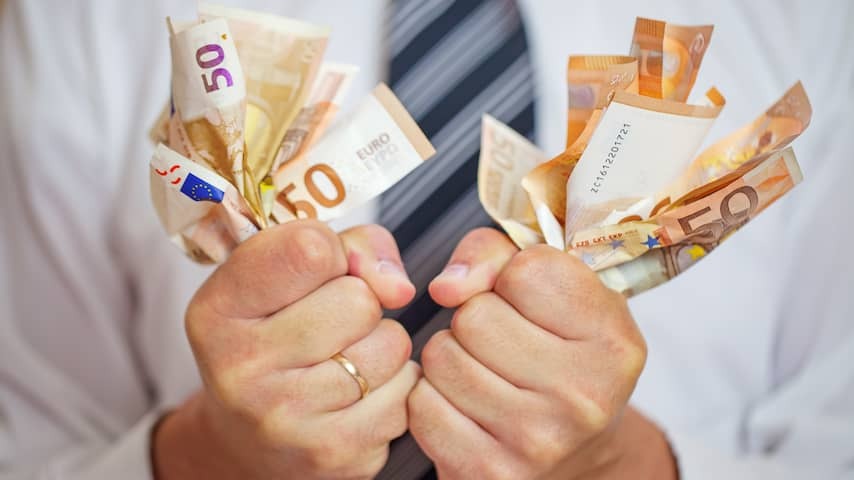
Dutch People are Fanatical Savers. That is a popular saying that, except for a short period, proves to be true in practice. Together we own over 500 Billion euros in Savings. But you can also save too much, experts say.
“Idally, you start with nothing and end with nothing,” Says Marten van Garderen or ING. Accordance to the economist, we tend to save too much. “If you have money left at the end of the ride, you could have spent it earlier.” That is good for the economy and for yourself.
When Economists Talk About Saving, They Mainly Look At The So Called Savings Rate. That is the part of your income that you do not spend on consumption and is therefore a broad concept. “That can simply be saving, but also paying off your mortgage, putting money aside for your pension or investing,” Van Garderen Explains.
That savings rate has actual leg QUITE HIGH IN THE NETHERLANDS FOR DECADES, With the Exception of Approximately The First Ten Years After the Turn of the Century. “That was a period when we were dissavating,” Says Researcher Yvonne Adema of the Netherlands Bureau for Economic Policy Analysis (CPB). While in 1990 there was a peak. “Almost as High as core corona.”
How much money we spend and save from our income mainly depends on sentiment. With the exception of the corona period, because we simply couldn’t spend our money because everything was closed. “Duration Uncertain Periods, People Save More,” Says Adema.
After Corona, The Money Did Not Start Rolling
If you only look at the balance on our savings accounts, it has increased considerably since corona and the total sum Remains dizzyingly high at over 500 Billion euros. Both the CPB and other economists thought that after corona we would like the money roll again. But that Didn’t Happen. “It is going slower than we thought anyway.”
And the savings rate, which had risen to almost 10 percent false corona and then fell back to 1 to 2 percent, is rising again. The fact that we do not spend a larger part of our income is mainly due to the dutch housing market. And, More Specifically: The MortGage Rules.
“Since these have Become Stricter, You See the Savings Rate Increase,” Says van Garderen. Adema also confirms this: “Due to the Tightening of the Rules, HomeWers Increasingly Have an Annuity MortGage. That Is a MortGage in which you pay the Same Gross Monthly Amount, Made Up Of Interest And Repayers. Result, more is being repaid and therefore saved. “
That was also Exactly the Intention of Tighting the Rules After the Financial Crisis of 2009. As a Result, The Choice Today is More Often to Save – In The Broad Definition of the Term – than To Consume. People with a MortGage Debt also Increasingly Choose to use a Windfall to pay off the MortGage Instead of Consuming, even if they are not forced to do so by stricter rules.
‘People are not in the right mood to spend’
Then the Question Arises as to what is better for the economy: saving or consuming? “In Theory, you can save too much as a country,” Says CPB Researcher Adema. “Japan is or cited as an example. In the extreme case that you consume nothing as a country and save everything, the economy comes to a standstill.”
There is no ‘iDeal’ Figure for the Savings Rate, Such as the 2 percent target for inflation from the European Central Bank (ECB). The Idea Behind This is that a Little Inflation is Lubricant for the Economy. Consumption is good for the economy in the short term anyway, but saving is good for the long term.
Savings are invested in investments. “And if the economy grows, then both consumption and savings can grow and that is happening now,” Says Adema.
Both economists do not think it is likely that the savings rate will ever Become negative again, as at the beginning of this century. “The consumer now has more buyhasing power and there is more in savings accounts,” Says van Garderen. There has actual leg too much of that spray corona. “People are not in the right mood to spend it. After Corona came the energy crisis, high inflation, geopolitical tensions and the trade war.” As a result, we will initiate save an increasing part of our income for the time being.
ING Economist van Garderen: “The Savings Rate Will at most fall somewhat when things get better and people let the money roll again. Saving too much is not good for the economy, because too little is consumed and that is not good for economic dynamics.” The CPB expects the savings rate to be 5.6 percent this year, to increase to 6.5 percent by 2030. “We are not yet spending the money and masse. The situation in the world is not conducive to that.”